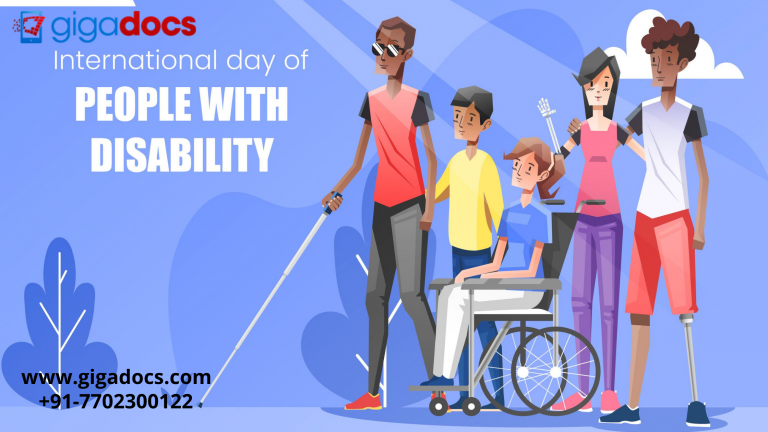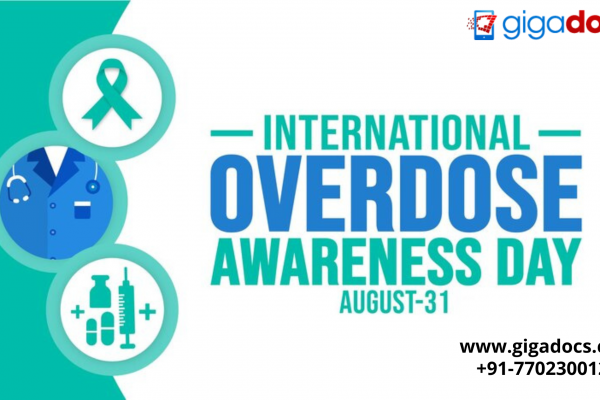About 15% of the worldwide population is affected by Disability. While disability prevalence is higher in developing countries, those in developed or underdeveloped are not left out. More than 1 billion disabled people worldwide face extreme discrimination, including poor education outcomes, unsensitized living conditions, lower employment levels, higher poverty rates, and poor health consequences.
Disability, according to the 2030 Agenda for Sustainable Development, cannot be a reason or criterion for the lack of access to development programming and the realization of human rights. This International Day of Disabled Persons, Gigadocs, brings you a write-up that helps you better understand the diseases that affect disabled people and how teleconsultation can help.
How do diseases Affect Disabled People?
- Disabilities in Learning
Learning difficulties can be fatal; they can affect one’s ability to learn, speak or write and, in the long term, cause a deterring effect on one’s standard of living and healthcare. Learning disabilities can last a lifetime, and some people have multiple overlapping learning disabilities. Others may have a single, isolated learning difficulty that has little impact on their lives.
- Musculoskeletal Conditions
Musculoskeletal injuries can result in temporary or permanent disability, rendering some people unable to move freely. These disorders include joint injuries, tendinitis, repetitive strain, and back pain. Do you know? Work-related musculoskeletal disorder disability is the primary cause of disability among the working age group.
- Arthritis
Disabled people are more likely to develop Arthritis and Joint inflammation.
- Pressure Sores
They include Ulcers and bed sores which are often caused when the person affected is in bed most of the time. They generally appear on the elbow, back of the head, heels, hip, elbow, and back. In short, the area’s most directly in contact with the bed and non-stationary. Additional care should be taken, for those who are bedridden and people who use wheelchairs.
- Pain
People with various disabilities frequently report pain. The duration of a person’s pain can be classified as long-term (also known as chronic) or short-term. Pain which can be long-term or short term can affect one’s daily functioning and life activities, which include as essential as walking or doing regular work like combing or changing clothes.
- Asthma
Asthma is a respiratory condition of the lungs; it has a long-term effect on children and adults. Disabled people have more challenges facing asthma, and their caregivers also face a tough time handling asthma.
- Depression and Mental Health
Disabled people face mental health troubles, depression, and stress attacks disabled people more. Mental health affects a disabled person’s access to healthcare, and outdoor activities add to the woes.
- Flu
Did you know disabled people face more flu and respiratory troubles? Some physical disabilities can even impair their body’s ability to fight infection.
- Injury
Injury, which includes homicide, suicide, and unintentional injury, is the primary cause of disabilities aged 1 to 44.
Digital Consultation and Telemedicine with Gigadocs
People with chronic care conditions can benefit from virtual care through Gigadocs by removing the barriers to access that prevent them from visiting a physical doctor’s office, especially when they require regular checkups.
Digital healthcare from Gigadocs allows people with disabilities to be regularly checked for chronic care conditions, reducing the need for emergency department visits. Regular Gigadocs checkups can help prevent patients’ diseases from worsening. Gigadocs virtual care can go above and beyond to remove barriers like transportation, scheduling, and long wait times for medical appointments. Non-disabled people may find these obstacles frustrating and time-consuming. For someone with special needs, these additional challenges can be overwhelming. Telehealth simplifies the process of these preventative checkups, empowering and enabling disabled people and their caregivers to attend important appointments without the additional burden of leaving home.
To download the Gigadocs telehealth app and book your teleconsultation-
- IOS App – apple.co/2W2iG4V
- Android App – bit.ly/33AQoRC
To know more e-mail, at info@gigadocs.com




